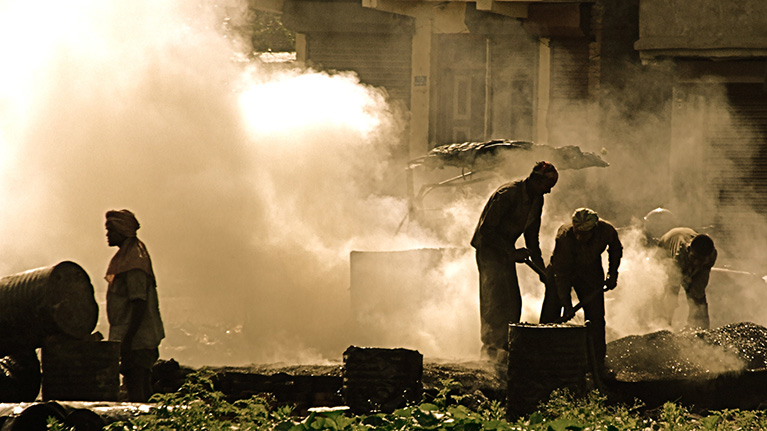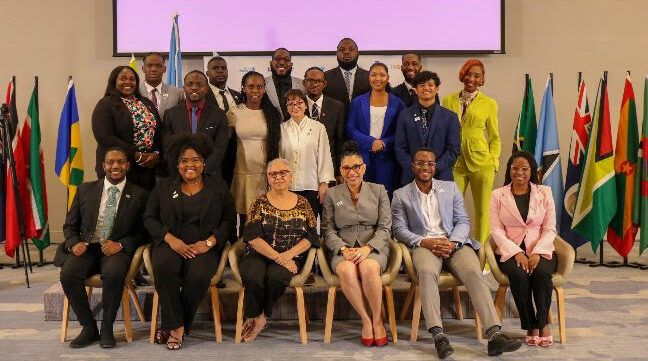By Desmond Brown
PUNTA CANA, Dominican Republic, Nov 18 2016 – As the Barbados Light & Power Company Ltd. (BLPC), moves ahead with plans to implement measures to reduce its operating expenses, a local consultant is hopeful that this will in turn ease the burden of high electricity costs for Barbadians.
Judi Clarke, a Climate Change Adaptation Specialist, said “electricity is relatively expensive” in Barbados, and often one of the highest expenses paid by small businesses on the island.
“They are already investing in renewable energy, but specifically, to help more and to increase resilience to climate change, BLPC should continue planning for the systematic replacement of aging generation plants and weak infrastructure or assets with new inputs that are not only more energy efficient, but also resilient to the strain that will be exerted by both current and future climate change,” Clarke told Barbados TODAY
“They should also continue to expand and diversify current energy efficient (EE) measures in order to reduce losses or wastage of energy.”
Given the high and rising prices for imported fossil fuels and that the BLPC is entirely dependent upon oil to produce electricity, Clarke said the company’s plan to introduce grid-scale solar photovoltaic (PV) and wind projects as part of their efforts to diversify away from oil is a move in the right direction.
BLPC plans to install the infrastructure for a 10MW wind farm at Lamberts in St. Lucy. Additionally, they hope to add another 10MW solar farm by 2017.
BLPC was established in 1955 and is responsible for production, transmission and distribution of electricity on the island. It has a total installed capacity of 239.1 MW to meet a peak demand of 157 MW.
Clarke notes that BL&P is also aware of its greenhouse gas (GHG) emissions and its importance to assisting Barbados in meeting its GHG reduction targets and has implemented reduction measures.
“The last diesel plant to have been installed has a facility that collects ash and traps flue gas; and there is improved efficiency of operations and equipment by maximising the power generated for fuel use and ensuring consistent maintenance,” she said.
“Lower quantities of Bunker C and diesel are also now being imported because subsidies have been removed and plants and facilities have been retrofitted to burn aviation fuel to generate electricity.”
Clarke spoke with Barbados TODAY on the sidelines of a regional workshop on sustainable energy sources for rural development and climatic resilience of off-grid communities in the Caribbean, Central America and Mexico, being held in Punta Cana, Dominican Republic.
The three-day workshop, which is being attended by delegates from the Caribbean and Latin America, opened here Wednesday.
The workshop was coordinated by Smart Villages – an initiative funded by the Cambridge Malaysian Education and Development Trust (CMEDT) and the Malaysian Commonwealth Studies Centre (MCSC) and through a grant from the Templeton World Charity Foundation (TWCF).
Dr Bernie Jones, Co-Leader of the Smart Villages Initiative said bringing sustainable energy to off-grid villages, and more importantly helping communities to make innovative and productive use of energy, are major opportunities for driving rural development worldwide.
“The combination of economic development and harnessing technology to provide key services such as health, banking and education, helps break down the inequality between urban and rural populations,” Dr. Jones said.
“Importantly for this region, the ability of its decentralised rural infrastructure and provision of services to make communities much more resilient to natural disasters and other shocks, should make the concept an even higher priority for rural leadership, businesses, government and NGO’s.”
The Smart Villages Initiative brings together key players – entrepreneurs, scientists and engineers, villagers, NGO’s, financers, civil society and development organisations, policymakers and regulators – from the frontline of delivering off-grid energy for development to rural communities in order to identify current barriers and how they can be overcome.




